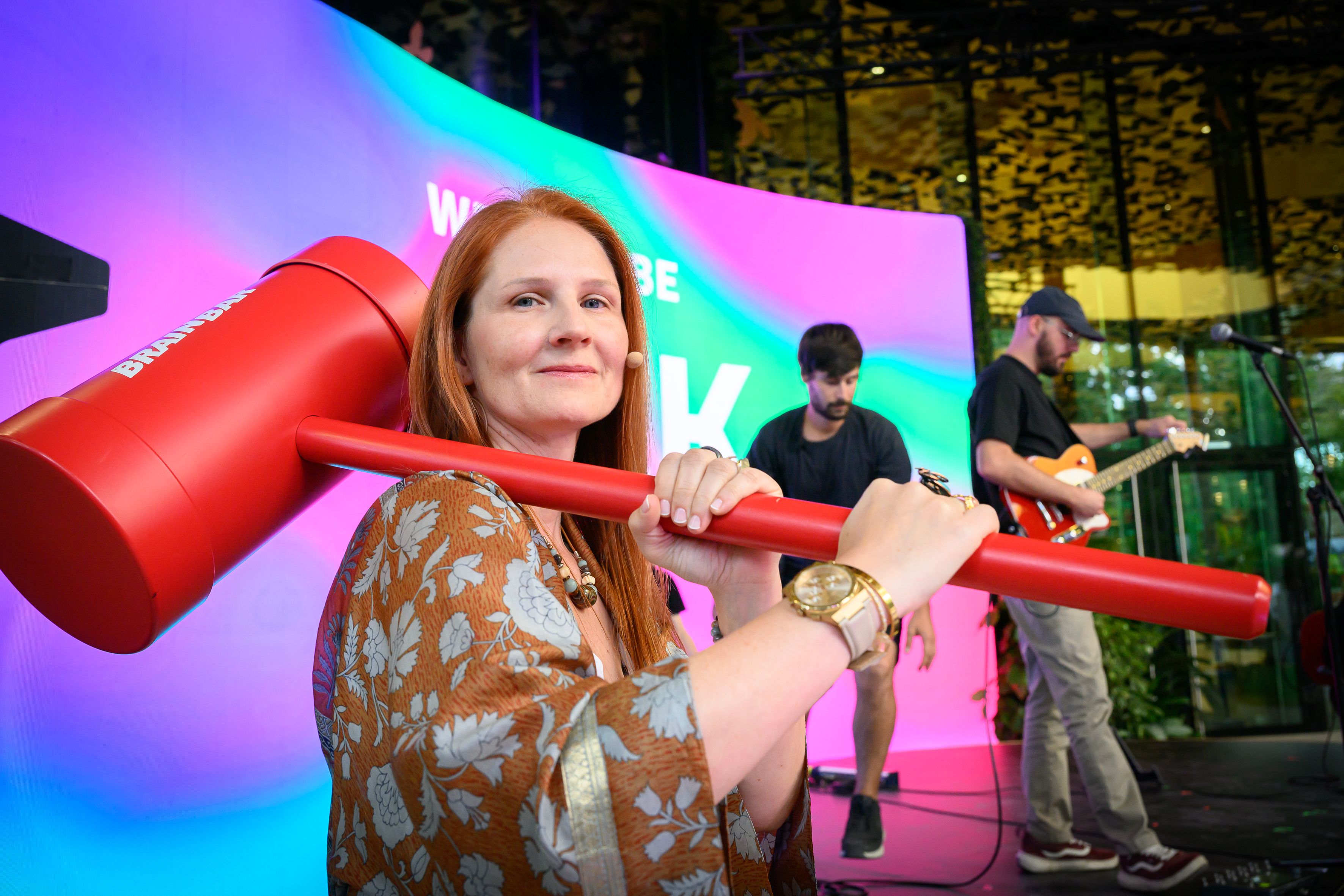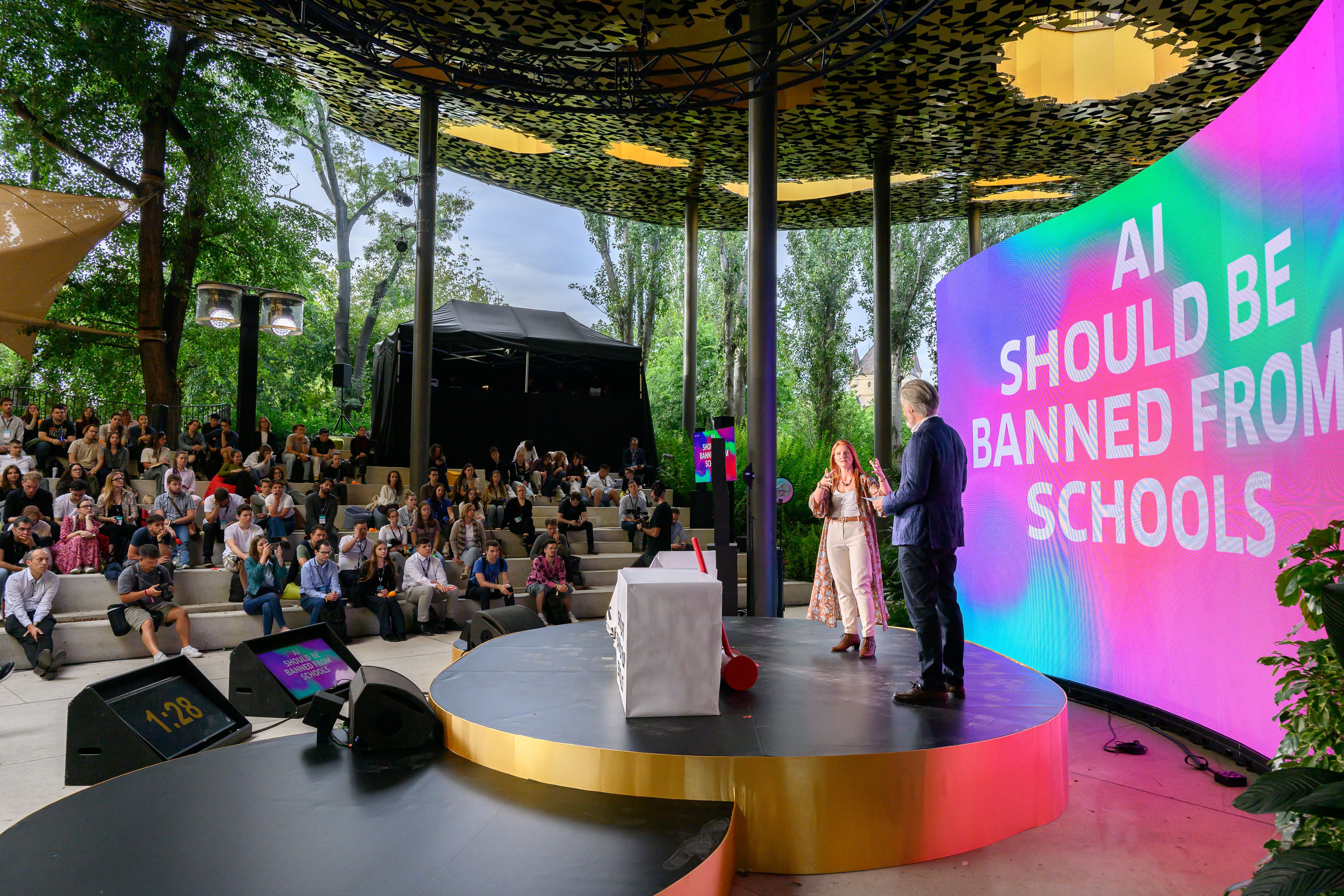Built on shared values, the partnership between Brain Bar and KPMG has remained unbroken for six years. This year again, they brought to one of the continent’s largest future festivals such topics and speakers that shape both the economy and society. This year, one of the main guests of the event and of KPMG was Bianca Scheffler, Head of AI Center of Excellence at KPMG Switzerland, who in her keynote addressed, among other things, whether AI use should be integrated into school curriculums and explored what effect does artificial intelligence has on the human brain.
The relationship between Brain Bar and KPMG is defined by their shared values – a commitment to the future, multidisciplinary thinking, and a focus on raising the next generation of leaders. This is why it is crucial for KPMG to engage in discussions regarding issues such as sustainability, ESG guidelines, and the challenges artificial intelligence poses. This year, guests of BrainBar engaged with these topics at the KPMG booth, with Julianna Nagy, KPMG’s Senior Manager speaking at the Talent Hub, and Bianca Scheffler, the firm’s AI expert and a featured guest of this year’s Brain Bar on the MVM Stage.”
In her keynote, the leader from KPMG Switzerland set out to address three myths. “Is AI biased? It may not seem so at first, but let’s just have a look at where it learned everything it knows! From an extremely biased world, from the internet and social media. Technology is already prone to mistakes.” highlighted Bianca at the beginning of her presentation.

According to Bianca Scheffler, it is understandable if people feel now like they did during the technological revolution, since artificial intelligence is transforming the whole world and the functioning of the human brain as well. The expert believes that the proper use of AI brings not only a quantitative but also a qualitative change, and for this proper use, what is really needed is not technical knowledge, but human.
During her lecture, the AI expert also spoke about how women currently use artificial intelligence in greater numbers, because its use requires more social sensitivity and cooperative skills. “Using AI is a relational, social thing and it creates a positive feeling in its user. I prompt the tool, and what I asked for is created. That is why it will be important to build a relationship with AI tools like the one we build with our fellow human beings,” said the KPMG expert, pointing out that in the long run AI can become a true colleague of humans.

On the stage, Bianca Scheffler raised another important question: is there a need to ban artificial intelligence from schools? The AI expert clearly argued that it should not be banned from schools, but rather that we aim to encourage the development of a healthy relationship with it. She highlighted that in schools she usually asks students to write a story, and then the next day come up with three different endings for that story, but without using AI. According to Bianca Scheffler, those who do not encounter artificial intelligence in school are at a disadvantage, because they will not only lag behind in technology, but also in critical thinking.
“I am not saying that AI has to be with us all day, but there is a real need for that specific education that teaches me what one can do with artificial intelligence, where the limits are, and what kind of relationship an individual should develop with the technology,” said Bianca Scheffler, emphasizing that there is indeed a place for AI-related curriculum in schools and – since the improper use of artificial intelligence carries great risks – we must raise people with the awareness of AI’s capabilities.
The BrainBar festival also featured the KPMG Future Leaders workshop, where KPMG’s leaders Zsófia Linczmayer, associate partner and Anna Kálmán, senior manager engaged young talents in an interactive discussion about the skillset future leaders must acquire.
The collaboration between Brain Bar and KPMG is not only about sharing knowledge but also about creating opportunities to shape the discourse on the future together – in Hungary, across the region, and on a global scale.
